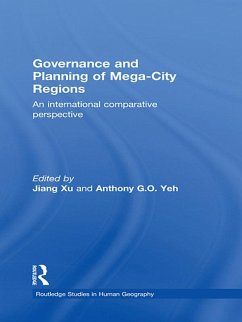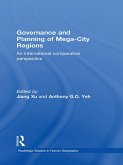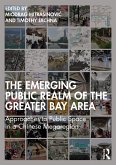Neoliberalism's market revolution has had a tremendous effect on contemporary mega-city regions. The negative consequences of market-oriented politics for territorial growth have been recognized. While a lot of attention has been given to how planners and policy makers are fighting back political fragmentation through innovative governance and planning, little has been done to reveal such practices through an international comparative perspective.Governance and Planning of Mega-City Regions provides a comparative treatment and examination of how new approaches in governance and planning are reshaping mega-city regions around the world. The contributors highlight how European mega-city regions are evolving and how strategic intervention is being redefined to enable the integration of urban qualities in a multi-level governance environment; how traditional federal countries in North America and Australia see the promise of major policies and development initiatives finally moving ahead to herald a more strategic intervention at national and regional scales; and how transitional economies in China witness the rise of state strategies to control the articulation of scales and to reassert the functional importance of state in a growing diffused power context. This book offers case studies written from a variety of theoretical and political perspectives by world leading scholars. It will appeal to upper level undergraduates, postgraduates, researchers, and policymakers interested in urban and regional planning, geography, sociology, public administrations and development studies.
Dieser Download kann aus rechtlichen Gründen nur mit Rechnungsadresse in A, B, BG, CY, CZ, D, DK, EW, E, FIN, F, GR, HR, H, IRL, I, LT, L, LR, M, NL, PL, P, R, S, SLO, SK ausgeliefert werden.









